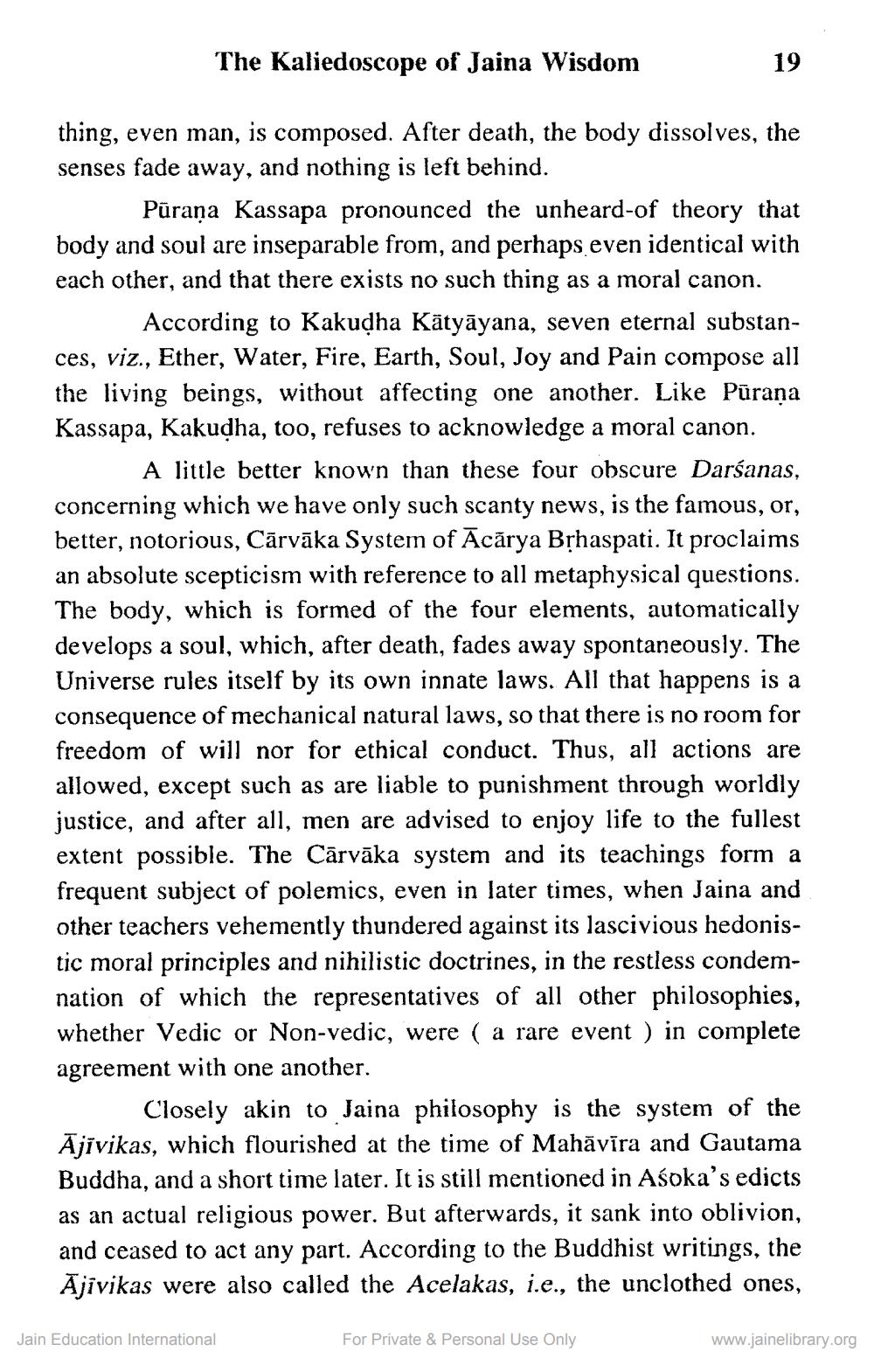________________
The Kaliedoscope of Jaina Wisdom
19
thing, even man, is composed. After death, the body dissolves, the senses fade away, and nothing is left behind.
Pūraņa Kassapa pronounced the unheard-of theory that body and soul are inseparable from, and perhaps even identical with each other, and that there exists no such thing as a moral canon.
According to Kakudha Kātyāyana, seven eternal substances, viz., Ether, Water, Fire, Earth, Soul, Joy and Pain compose all the living beings, without affecting one another. Like Pūrana Kassapa, Kakudha, too, refuses to acknowledge a moral canon.
A little better known than these four obscure Darśanas, concerning which we have only such scanty news, is the famous, or, better, notorious, Cārvāka System of Ācārya Brhaspati. It proclaims an absolute scepticism with reference to all metaphysical questions. The body, which is formed of the four elements, automatically develops a soul, which, after death, fades away spontaneously. The Universe rules itself by its own innate laws. All that happens is a consequence of mechanical natural laws, so that there is no room for freedom of will nor for ethical conduct. Thus, all actions are allowed, except such as are liable to punishment through worldly justice, and after all, men are advised to enjoy life to the fullest extent possible. The Cārvāka system and its teachings form a frequent subject of polemics, even in later times, when Jaina and other teachers vehemently thundered against its lascivious hedonistic moral principles and nihilistic doctrines, in the restless condemnation of which the representatives of all other philosophies, whether Vedic or Non-vedic, were ( a rare event ) in complete agreement with one another.
Closely akin to Jaina philosophy is the system of the Ājivikas, which flourished at the time of Mahāvīra and Gautama Buddha, and a short time later. It is still mentioned in Asoka's edicts as an actual religious power. But afterwards, it sank into oblivion, and ceased to act any part. According to the Buddhist writings, the Ājivikas were also called the Acelakas, i.e., the unclothed ones,
Jain Education International
For Private & Personal Use Only
www.jainelibrary.org




